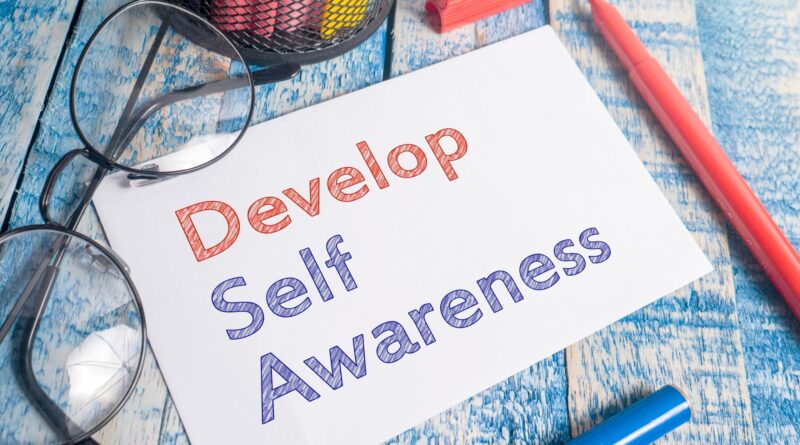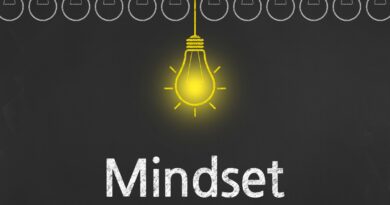Relationships & Self Awareness | What One Must be Aware of?
Cultivating self-awareness is one of the major factors that can help you to avoid making a huge mistake when making relationship choices.
Lacking self awareness means a person doesn’t really know who they truly are at their core; they don’t know their principles, standards requirements and values which makes it very easy to lose themselves when they become involved with new relationships.
Priorities and goals are very easily abandoned in a relationship when a person lacks a strong sense of self; you cannot realistically hope to establish a genuine emotional connection with someone and work towards a genuine committed relationship if you don’t even know who you really are.
If you lack self awareness going into a relationship, any unresolved issues will eventually surface and be reflected back to you by your partner.
Alternatively, you will consciously or subconsciously project your issues onto your partner. Just because someone wants a relationship does not necessarily mean they are ready for one and a lack of self awareness will inevitably lead to poor relationship choices.
Denial
Being in denial, sometimes referred to as ‘burying your head in the sand’, is the refusal to acknowledge an unacceptable truth or emotion which is usually an unconscious defense mechanism.
When someone is in denial they are refusing to face and acknowledge the reality of a situation or to accept how they really feel. This strategy delays dealing with whatever needs to be dealt with or protects a person from emotional pain.
Denial is always temporary measure; suppressed feelings don’t just disappear and have to be healed. Being in denial is a futile and even dangerous strategy because something is denied or ignored it cannot be changed or improved.
Refusing to acknowledge and accept the truth or your feelings just means zero personal growth because no one can change what they refuse to recognize and acknowledge.
You might think you are protecting yourself but you are really sabotaging yourself. Ignoring problems or issues is futile; it doesn’t solve anything and certainly won’t help to increase your self awareness.
Many people would learn the lessons of their relationship mistakes if they were not so busy denying them.
Cognitive Dissonance
Scientific research has revealed many of the mysteries of dating, love and relationships. Cognitive Dissonance is one of the most important concepts to understand which may be affecting you in your search for love much more than you may realize.
The phrase was coined by Leon Festinger in his 1956 book When Prophecy Fails and the following year he published “A Theory of Cognitive Dissonance” in which he outlines the theory.
The term is used in modern psychology to describe the discomfort felt by a person seeking to hold two or more conflicting beliefs, ideas, values or emotional reactions.
This can result in feelings of guilt, embarrassment, anger or even surprise. Cognitive Dissonance is the uncomfortable feeling people have when they’re trying to reconcile two conflicting ideas or concepts.
It causes people to change their beliefs to fit their actual behaviour instead of using their beliefs to motivate their behavior.
Cognitive Dissonance & Relationships
Human beings constantly seek consistency in their love lives and problems often arise when Cognitive Dissonance becomes active in their thinking.
There are single people who quite naturally seek a partner for companionship and love. Their conscious belief system is they’re looking for love and commitment so decide to find a partner.
After dating and a period of time in the relationship, they appear to have little desire to fully commit which can manifest in different ways; they might sabotage the relationship or use a variety of tactics to prevent it from progressing to the next level.
When we are not in touch with ourselves and have not understood and healed any negative aspects of our emotional programming we tend to react to other people without giving it too much thought.
We cause ourselves problems when we become involved with people without really understanding what motivates us to be attracted to certain personality types.
Cognitive dissonance can only be dealt with by individuals who have cultivated a certain level of self-awareness which gives them the ability to recognize it within themselves.
Understanding cognitive dissonance allows us to be consistent and act with integrity within our relationships. This prevents us from misleading others and causing unnecessary hurt when we’re looking for love.
Self Awareness
People who are reactive are at the mercy of other people and circumstances and are easily influenced by their environment.
If you are the reactive type you will often feel helpless believing that luck or fate is constantly leading you into unhealthy relationships.
A person who lacks self-awareness:
• Compulsively reacts to outer circumstances
• Compulsively reacts to the behavior, actions and moods of other people
A person who is self aware operates from a solid foundation of clearly knowing who they are. They have learnt to trust themselves and to remain calm which gives them the power to make better relationship choices.
• The opinions or actions of other people does not drastically influence their outlook
• The opinions or actions of other people doe not overtly affect their moods or attitude
Understanding yourself deeply gives you the power to choose your response to any given situation and more importantly the wisdom to avoid potentially unhealthy relationships.
It is not what happens to us that is important but how we respond and learn through our life experience which provides the key to greater personal responsibility.
When you are self-aware and proactive you will seek out alternatives, formulate strategies and decide on a course of action that will facilitate your personal growth which greatly improves your prospects for finding a fulfilling relationship.
One of the advantages of knowing which of your needs exert the strongest influence on your own behaviors is having a clear understanding about how they affect your interpersonal relationships.
For example, you probably know someone who is ‘status hungry’ which means they are primarily attracted to potential partners who possess symbols of high status and material success.
This person may be seeking a partner who matches their own levels of achievements or may feel they are lacking in this area so looks for a partner who can compensate for or even elevate their own status.
It doesn’t really matter if each person’s needs are authentic or merely perceived, because the ‘need’ feels real on an emotional level of perception and motivates different people in a variety of ways. When needs aren’t satisfied, this often causes frustration, conflict and even emotional stress.
Active self-awareness helps you exploit your emotional strengths and cope with any weaknesses in the short term while you spend some time making improvements.
People who possess high levels of self-awareness are naturally in control of themselves and as you become more self aware your intuitive decision-making skills will develop naturally.
When someone has well-developed emotional self-awareness they are effective and intuitive decision makers.
Once you have a sense of who you are and a vision of the person you want to become, a plan for personal development can be created.
Self-awareness allows you to manage yourself more effectively and helps your intuitive decision making process. Developing your self-awareness is a gift you give to yourself!
Increasing yourself-awareness will reveal:
• How your thoughts and words impact how your emotions
• How your emotions maybe subconsciously driving your behaviors
• How your hidden core beliefs affect your relationship prospects
Before you can begin constructively to change certain negative patterns, beliefs or emotional issues you have to understand yourself clearly. When you learn to give your mind a new interpretation you begin to see an entirely different world.
With this practice we become aware of the personal stories we tell ourselves that may be highly subjective and not based on the actual facts. Growing in self-awareness gives us a real opportunity to create the life we desire and helps us to make better relationship choices.
Read:




